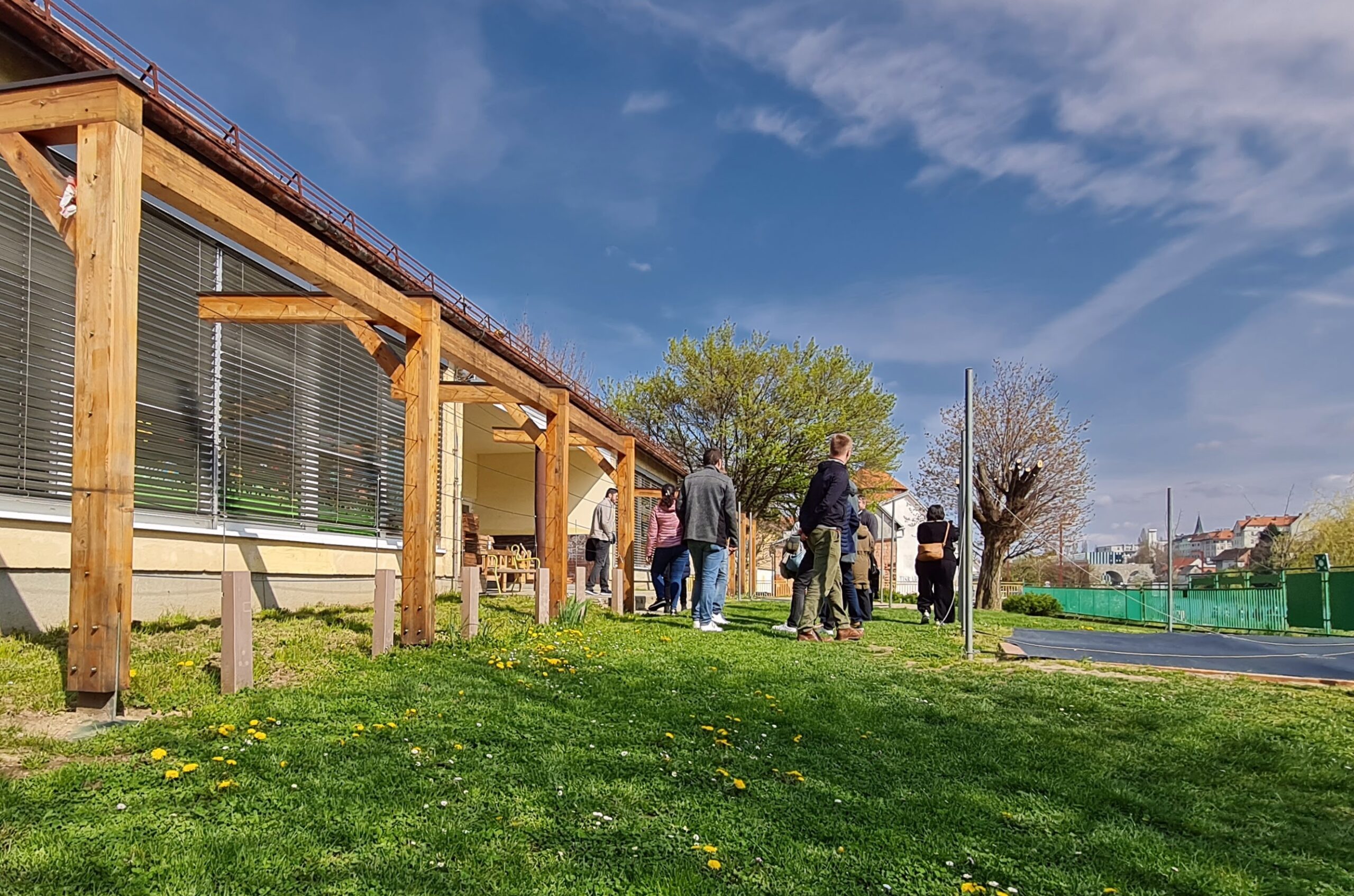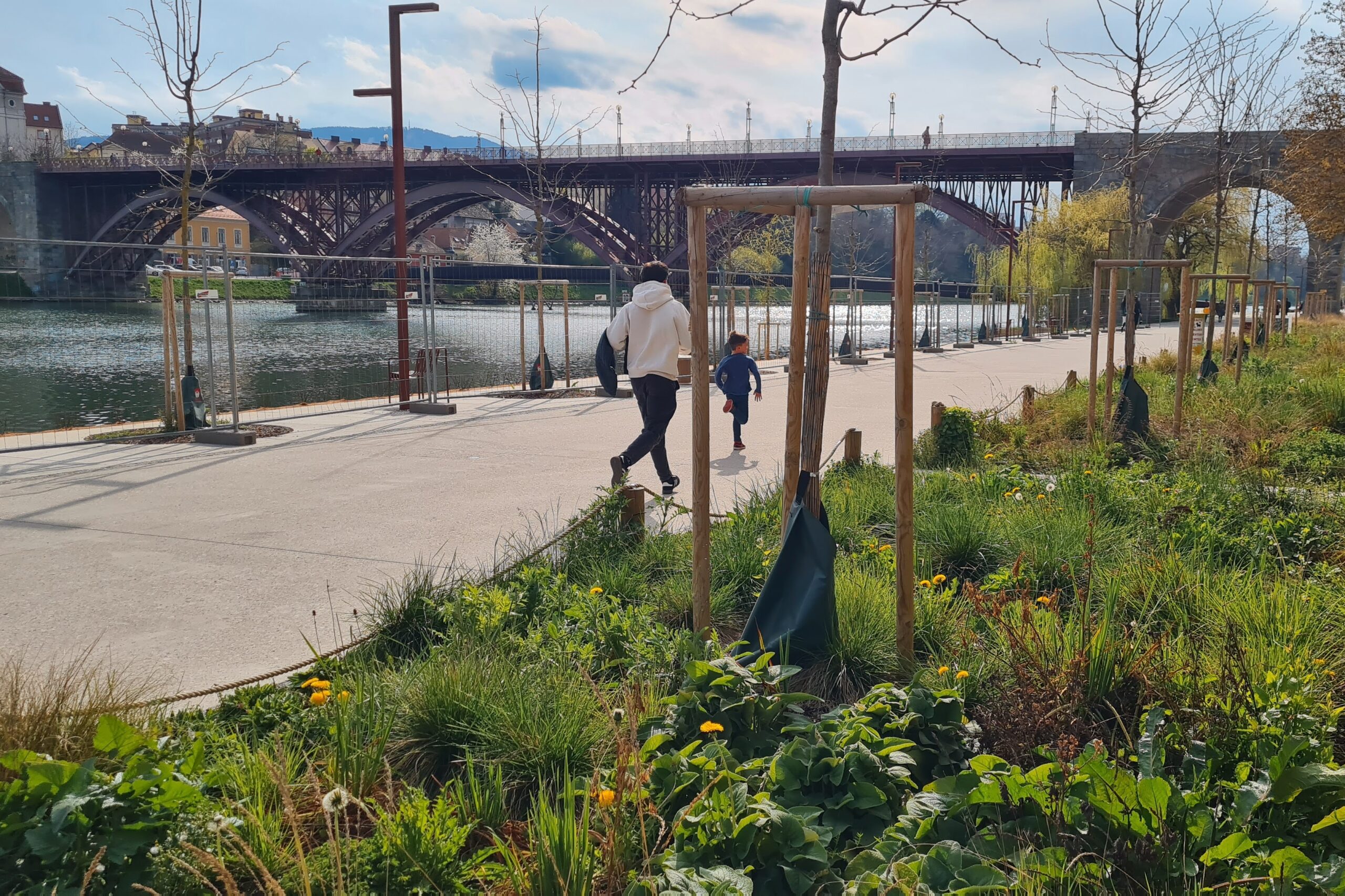Maribor On the Road to Beat the Heat

Maribor has taken bold steps to protect its citizens from rising temperatures. With the adoption of the Heat Action Plan in early 2025, the city is already putting ideas into action—from planting climate-resilient trees along roads to installing pergolas in kindergartens for natural shade.
But it’s not just about trees. It’s also about the people. Local pensioners, city employees, and families with children are all part of the journey. The message: everyone has a role to play in making our cities more liveable.
And the momentum is growing. National and local media have helped spread the word. Early summer, Maribor will host a press event to share how far they’ve come—and where the municipality is headed next.
Weiz: Preparing for a Hotter Tomorrow, Today
Weiz isn’t waiting for the next heatwave—it’s preparing for it now. Since the Heat Action Plan was adopted in December 2024, the city has been busy rolling out public awareness campaigns, workshops, and the city’s first heat alert system.
As warmer days approach, the city will launch the plan publicly in coordination with its new municipal government. Key actions include increasing drinking water access, educating vulnerable groups, and upgrading municipality buildings with energy-efficient cooling systems powered by solar energy designed to cool a central space.
Hajdúböszörmény’s Heat Resilience Takes Root
In Hajdúböszörmény, climate action is becoming a way of life. After adopting its Heat Action Plan this January, the city has already installed 47 green islands across town. These little oases offer shade, cleaner air, and a greener urban landscape.
What’s more, cool shelters, misting gates, and drinking stations are being considered to help residents—especially the elderly and young families—stay safe in the summer heat. And that’s just the beginning.
The city is counting on volunteers, institutions, and citizens to help maintain these improvements. A “Heat Day” and a public press event will soon engage the whole community.
Worms Connects People for Climate Resilience
Worms is showing how stakeholder engagement can beat the heat. The city’s pilot actions are bringing together schools, senior homes, outdoor workers, and involve universities to create a climate-resilient community. From hands-on workshops to smart digital sign-ups, Worms is getting everyone involved.
One major highlight will be the Heat Action Day on 4 June 2025, inviting stakeholder groups to learn, act, and protect one another. Meanwhile, the city is testing new tools like shadow routes for safer movement in the heat and installing sensors to make smart, data-driven decisions.
Activities in the Pilot Cities
Heat Warning Systems: Local Solutions for Timely Alerts
Maribor is finalizing a comprehensive Heat Warning System that will automatically extract alerts from the Slovenian Environment Agency’s website. Once a heatwave is forecasted, SMS messages will be sent to subscribed individuals and institutions working with vulnerable groups such as elderly care homes, kindergartens, and outdoor workers. The system aims to go live in June 2025 notifications during the pilot phase. If successful, the service will continue beyond the initial phase.
Worms is introducing the “Heat Phone,” a telephone-based heat alert service aligned with national meteorological warnings. Citizens can voluntarily register and will receive direct messages during heatwaves. The initiative will be promoted prominently during the city’s Heat Day on 4 June 2025.
Weiz is planning a new local heat warning system building on Styria’s regional infrastructure. A key feature is a dedicated Heat Action Landing Page on the city website. This platform will offer:
-
Email sign-up for warnings
-
Tips for specific vulnerable groups
-
Locations of cool rooms and shelters
The launch is expected by early summer 2025, accompanied by a targeted communication campaign.
Hajdúböszörmény is implementing a multi-channel warning system, based on the national Heat Warning System using emails to inform institutions (e.g. kindergartens, elderly homes), and public platforms like:
-
City’s Facebook page
-
Official website
-
Local TV and newspapers
-
Public bulletin boards
A new mobile app is in the making with an estimated launch in April 2025 using push pop-up alerts directly to users’ phones. The app includes special accessibility features for older residents. A campaign will promote app downloads and user engagement.
Advanced Training Sessions: Strengthening Local Capacity
Between 7 May and 10 June 2025, Maribor will run targeted training sessions for:
- Associations of pensioners and people with disabilities
- Elderly care staff and home visitors
- Pregnant women
- Kindergarten staff
- Outdoor workers in public companies
In Worms two initial trainings have already been held. Two additional sessions are scheduled for July 2025, focusing on early childcare workers. From 19 May to 27 June 2025, Weiz will conduct online training sessions, targeting:
- Caregivers of children (kindergarten staff, trainers, parents)
- Elderly care workers (including home care and nursing staff)
- Healthcare professionals (led by Mag. Pollhammer and Red Cross experts)
- Outdoor workers (e.g. construction, agriculture, road maintenance).
Hajdúböszörmény already organized four training sessions in February and March 2025, led by medical staff and the NGO “Green Circle”. The participants included caregivers and educators as well as managers of outdoor workers. Over 30 participants took part and feedback showed high satisfaction and demand for further information.
Weiz is gearing up its training sessions from 13th of May until the end of June 2025. The trainings kick off with stakeholders in the care sector inlcuding elderly care, mobile care, home nursing. Healthcare trainings for doctors, nurses, pharmacies, disabled care involving the Red Cross will be followed by trainings for organisations engaging people working outside: Construction companies, road service, municipal building yard, agricultural companies, Chamber of Labor.
Coming up: Policy Briefs for Wider Replication
A consolidated document will present policy briefs—one per pilot action. These aim to serve as blueprints for municipalities across Europe. Each brief will include:
-
Key measures and implementation steps
-
Required municipal decisions and stakeholders
-
Communication strategies for public outreach
-
Reflections on impact, feasibility, and sustainability
-
Recommendations for follow-up and cross-sector cooperation
These documents will be instrumental in ensuring that local heat mitigation efforts can scale and sustain impact across Europe.
